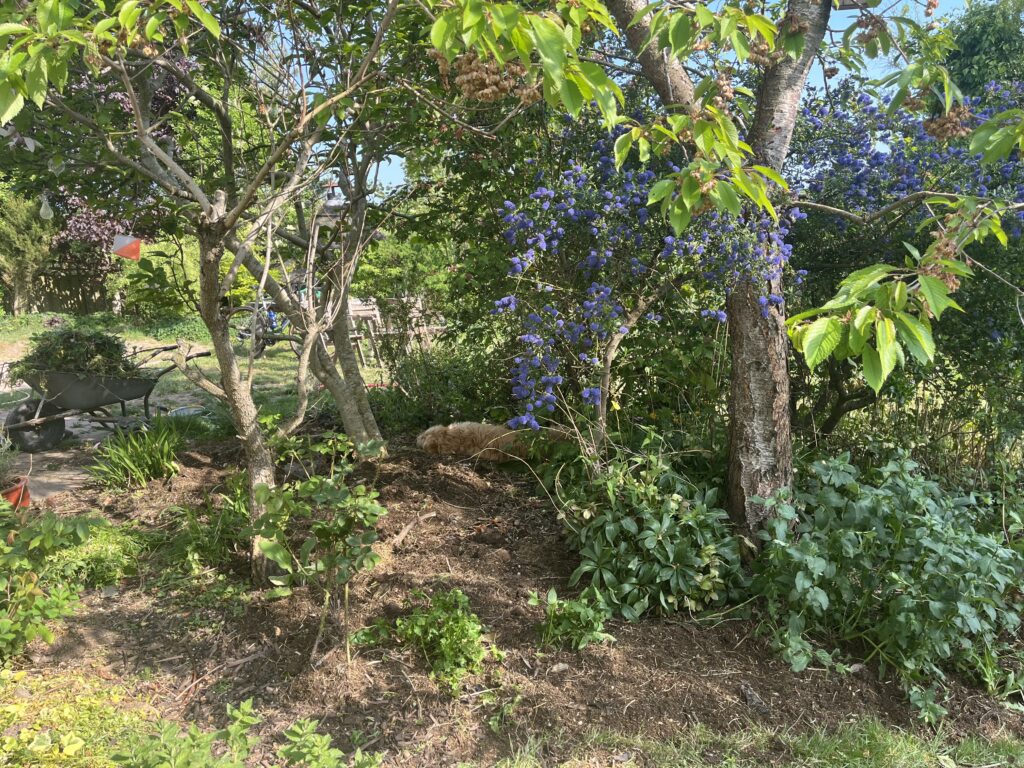Reap what we sow
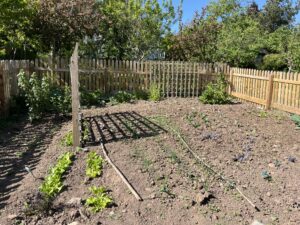 Emerging from winter
Emerging from winter
We have been plugging away at the garden. Each weekend an hour here or there, some convenient May bank holidays used as an opportunity to find myself upside down in weeds waist high. Emerging from a winter of tree planting and weeding out nettles, hogweed and poison hemlock, the spring has arrived and we have had some happy times planting plugs in the areas that we are gradually taming.
A weedy head start
Despite an unprecedented lack of rain, especially for Scotland’s wet and windy reputation, orchard blossom has sprung, and perennials such as rhubarb and currants have unfurled. In this drought though, plants intended for special harvests and genteel flowers have been over run by so many plants normally counted as weeds. Weeds have persisted in the baked, rock hard earth.
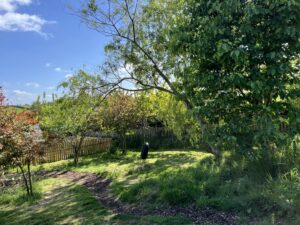 I’d like to think I’m more sympathetic towards weeds than I used to be, counting dandelions as my friends, and a reliable source for the bees. Nettles however are so vigorous, spreading a tangle of roots for metres along underground. And poison hemlock, tricksy looking similar enough to carrots or celery, are deadly poisonous are tricksy enough for me to eradicate them in a hurry.
I’d like to think I’m more sympathetic towards weeds than I used to be, counting dandelions as my friends, and a reliable source for the bees. Nettles however are so vigorous, spreading a tangle of roots for metres along underground. And poison hemlock, tricksy looking similar enough to carrots or celery, are deadly poisonous are tricksy enough for me to eradicate them in a hurry.
In this weather especially, we reap what we sow. With the weeds seeming far more drought tolerant than my plants of choice, we do need to cultivate the land with a view to what we hope to reap from it.
Reap what we sow
The same is true in our family. We reap what we sow. We raise the kind of children we hope to be around. We don’t send them to state care and expect them to come home with the kind of values we hope for in our family. After all, with so much ‘tolerance’ and ‘one size fits all’, values have become very much a grey area in state institutions.
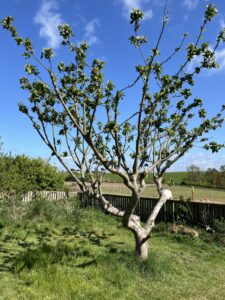 Grafted
Grafted
At some point we must choose what we intend to grow in our given space if we hope for any kind of fruitfulness. Some plants must be removed if others are to grow. And we carefully tend to the family we hope to be around.
As we show patience and good humour, so our children, connected and grafted in to us, will grow in patience and good humour. This is the true learning that happens – they don’t learn by being telt, but by experience – the experience of the language of behaviour they find themselves surrounded by, and the experience of how they find themselves treated. They learn best by the pleasure of experiencing love and belonging. It is a home ed privilege.
My hope for family life
How we tend as gardeners in our family determines the kind of children we get to be around. My hope is for a family that enjoys each other’s company – one where we choose to be around each other. I hope for a family that values a relationship with one another more than a relationship with the TV or mobile phone.
How to foster that? We reap what we sow.
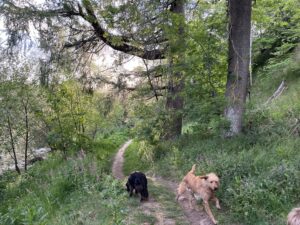 Let’s face it, 3 boys can be volatile. Let’s not pretend it’s all sunshine and flowers. There are a lot of big feelings, a lot of opinions, so much competition and quite a wide age range. There are moments of madness, and moments of beauty. Forgiveness is completely necessary, every day, sometimes in their own sweet time. But with belonging comes the value – this is something worth keeping, and not throwing away.
Let’s face it, 3 boys can be volatile. Let’s not pretend it’s all sunshine and flowers. There are a lot of big feelings, a lot of opinions, so much competition and quite a wide age range. There are moments of madness, and moments of beauty. Forgiveness is completely necessary, every day, sometimes in their own sweet time. But with belonging comes the value – this is something worth keeping, and not throwing away.
Indeed, allowing roots to go deep into family life and with our bravely emerging moral compass (where we become comfortable with going against the grain), we are raising our children in our family dynamic. A moral compass is a step of bravery as we let go of the ‘anything goes’ ethos we find ourselves surrounded by.
We value their innocence. We value their freedom from addiction. We value their interests and their input.
We raise our valued children to belong.
Disposable
This is one of the main things I hope for in my children as we go along our home edding way – it is the capacity to maintain healthy relationships. The kind of emotional endurance and constant forgiveness of one another is hard to muster for little ones sometimes, and why bother anyway in this disposable world.
In this cut and come again culture, we always rely on providence and stability. As we study our own history, and geography with so many natural disasters, we can be sure that this stability in our culture does not go without saying – the providence of our world and culture can tragically fickle.
We are not raising our children to find resilience when
- we encourage them to pursue personal interests and ambitions at all costs.
- When we raise them to rely on relationships through technology,
- and to rely on the state rather than family to feel ‘independent’.
- When our children let go of interdependence, these are fickle, poisonous roots to facilitate in our land.
These stems that we cut, be it material, retail therapy, or relationships cut for pride, or interests cut for popularity, come from a root. A cultivated, fertilised and facilitated root.
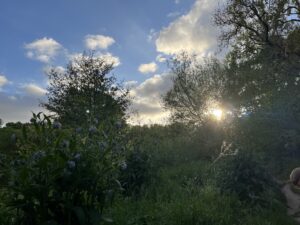 Nurturing enduring relationships
Nurturing enduring relationships
In a home ed upbringing we are choosing what roots we want in our ‘earth’. How we cultivate the land determines the kind of bounty we can hope for. We reap what we sow. Where we cultivate a family focused land, full of belonging and connection, we can hope for children with family centred values and enduring relationships.
Learning delayed gratification
Gardening requires so much patience and hope. The delayed gratification is so strengthening for the character. What we reap isn’t always what we sow – plants fail and pests take over. All my celery seedlings have wilted – I can’t point fingers – that was all me forgetting to water. Not a day after I had planted my purple cabbages, red rookie (aptly named), and little hands had already picked those beautiful purple leaves for a blue to pink colour changing tasty lemonade experiment. As we endure, gradually something will come of it. Where one crop fails, another produces in abundance, and the garden gradually becomes a place of delight.
As the children garden, and as they are going about their home ed day, they are encouraged to value one another, forgiving every day, and nurturing relationships with timely council. Because, building a healthy family, with enduring relationships is the most important, and most difficult thing they will ever achieve. As our children go through various and numerous periods of ‘potential’ in their lives, my hope is that they will be supported with enduring and loving relationships.
https://thereisnoshouldbe.com/growth-will-happen/
https://homeschoolgardens.com/gardening-with-kids-child-led-activities/

